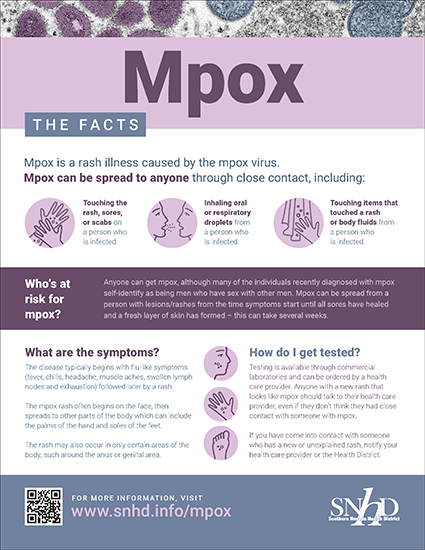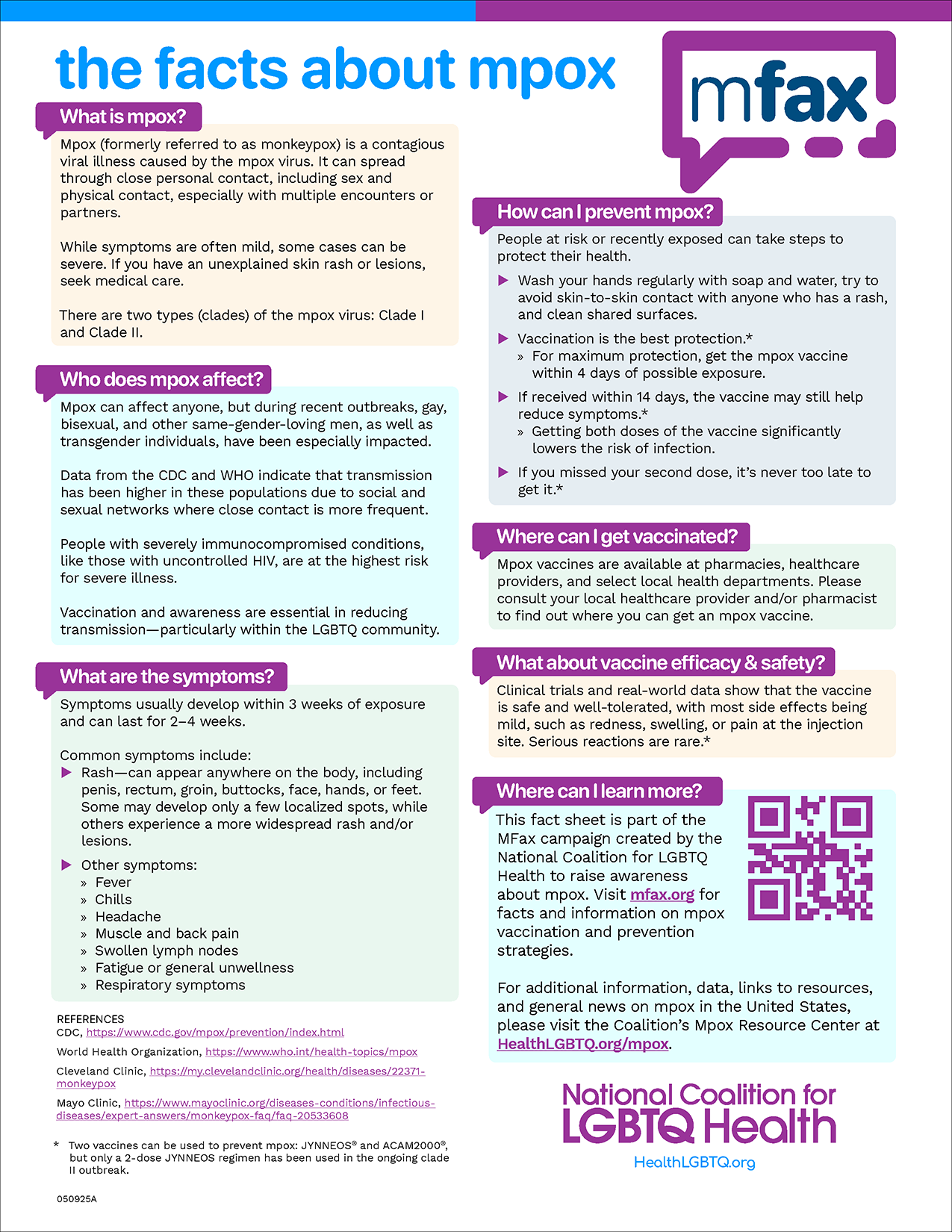Priority Health Issues
Mpox
Dallas County Health and Human Services - 2377 N. Stemmons Freeway, Dallas, TX 75207
Telephone: 214-819-2000
Mpox is a painful illness that can cause sores and scarring. It spreads through close contact with an infected person’s sores, scabs, or fluids. It can also be passed by touching contaminated items like towels, clothes, and furniture. The virus spreads easily through long face-to-face contact, including during sexual activity.
 |  |  |
For more details on mpox in Dallas County, including current case numbers, testing, and vaccine locations:
Schedule an appointment for an MPOX vaccine at Dallas County Health and Human Services:
Click on a question to view the answer.
Mpox is not thought to be easily transmissible like COVID. It is mainly transmitted by direct contact with infectious sores, scabs, and body fluids, but skin-to-skin contact is a risk even if not directly touching a sore or lesion. There have been reports of indirect transmission with infected surfaces/materials, such as clothing and linens contaminated with mpox. It is also thought to be spread by large respiratory secretions such as those exchanged during prolonged close face-to-face contact, such as kissing, and massages. It is possibly concentrated in semen, so safe sex using condoms is recommended to decrease your risk of infection. Wearing a condom is advised for 12 weeks after infection to prevent spread to others. But again, infection can be acquired from any skin-to-skin contact with infected lesions, contaminated linens/clothes, or possibly respiratory droplets.
The rash, which almost all patients get with mpox, can develop before flu-like symptoms develop (fever, chills, muscle aches, headache, and swollen lymph nodes). It usually occurs within 21 days of exposure, most commonly within a week, but 2% of patients may develop symptoms even 3 weeks after exposure. Patients are contagious for weeks, until all skin lesions are healed, scabs have fallen off, and a fresh layer of skin has formed, thus in addition to notifying all contacts, people with mpox should stay at home until lesions are completely healed.
Can I get immunized to prevent mpox?
While some cities in the country are starting to immunize high-risk groups, the supply is very limited, and Dallas is only able to immunize those with a known close exposure at this time. You would need to get the vaccine directly through Dallas County Health and Human Services, if available. Their phone number is (214) 819-2004 extension 6 and website is www.dallascounty.org/hhs
Regarding treatment for mpox, typically patients recover without treatment within 2-4 weeks. You should isolate from your pets, as it may be possible to pass to them. Also, for caregivers, remember to wear a mask, gloves, and all linen/clothes should be considered infectious. Patients at higher risk of complications include those with cancer, on immunosuppressants, and those with advanced HIV infection. Well controlled HIV is not thought to be a risk factor for more severe disease.
Yes, we know from mpox cases so far that it is being transmitted during skin-to-skin contact occurring as part of sexual encounters. However, mpox transmission is also occurring from skin-to-skin contact that happens during other activities like dancing, hugging, massages, and kissing.
For a full list of mpox frequently asked questions, click here.
- Providers currently doing mpox testing:
- Parkland Hospital (For Parkland Patients only): (214) 590-8000
- Prism Health: (214) 623-6830
- Methodist, Medical City, and Baylor Scott and White primary care or urgent care clinics may have testing opportunities available. Please contact them directly to inquire.
- Testing may also be available through your primary care provider. Please contact them directly to inquire.
- Please avoid going to the Emergency Department for testing only unless other circumstances warrant the visit.
QUICK LINKS
LOCATIONS
EMPLOYEES
-
You must be on the network to see these links.







